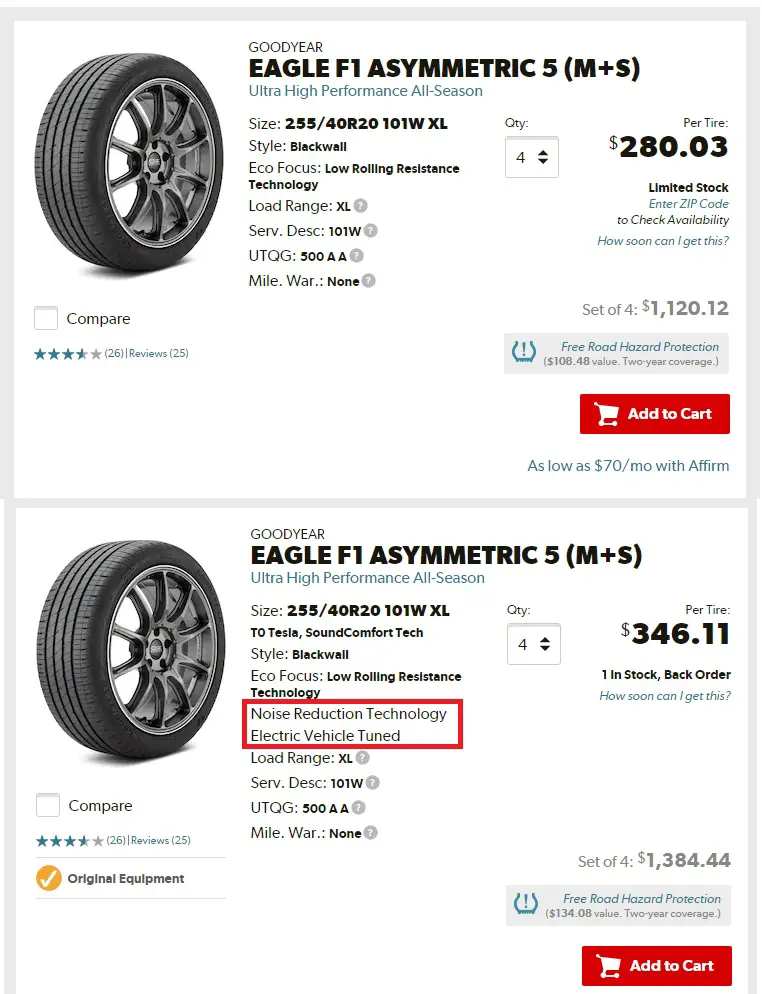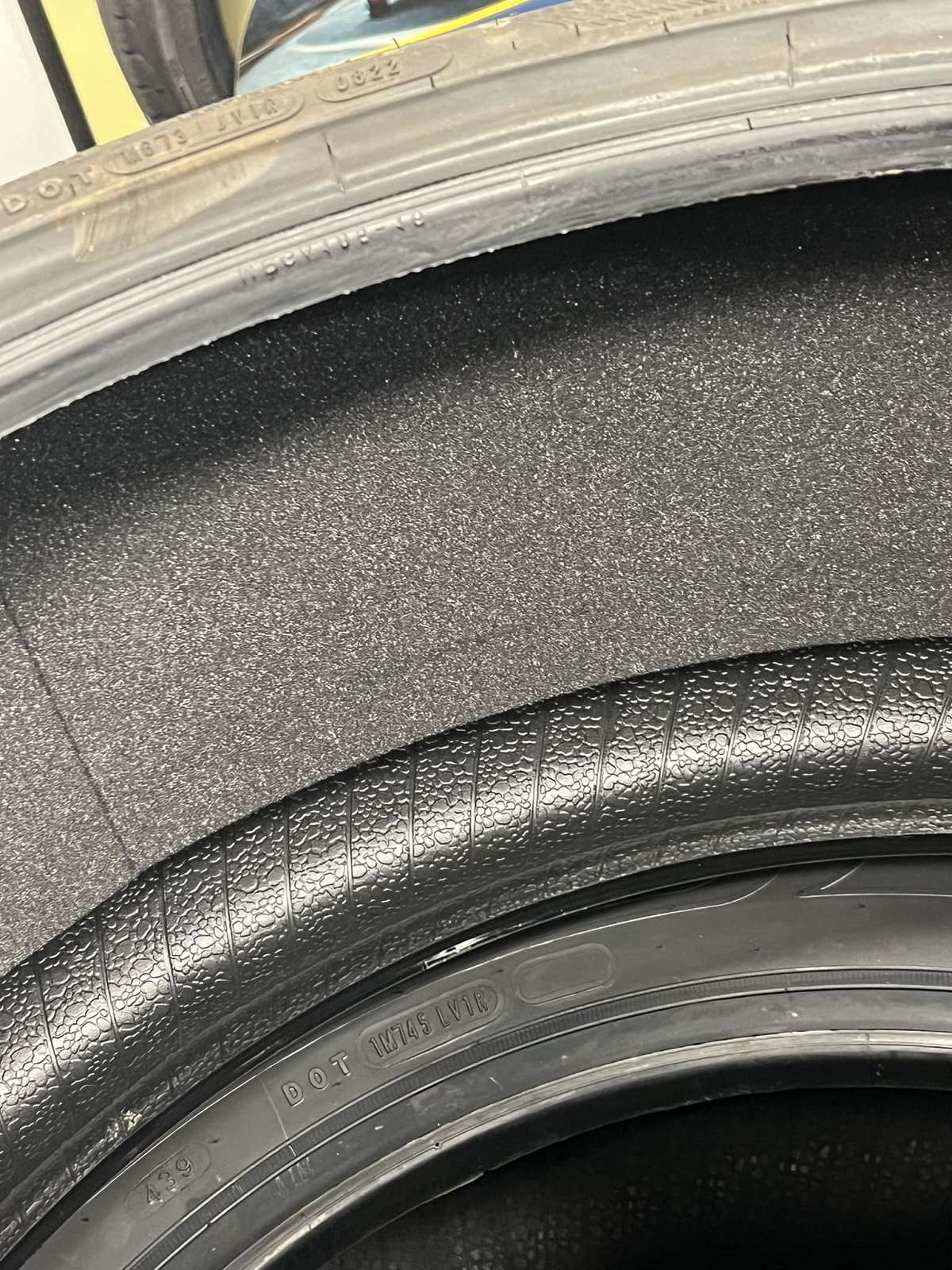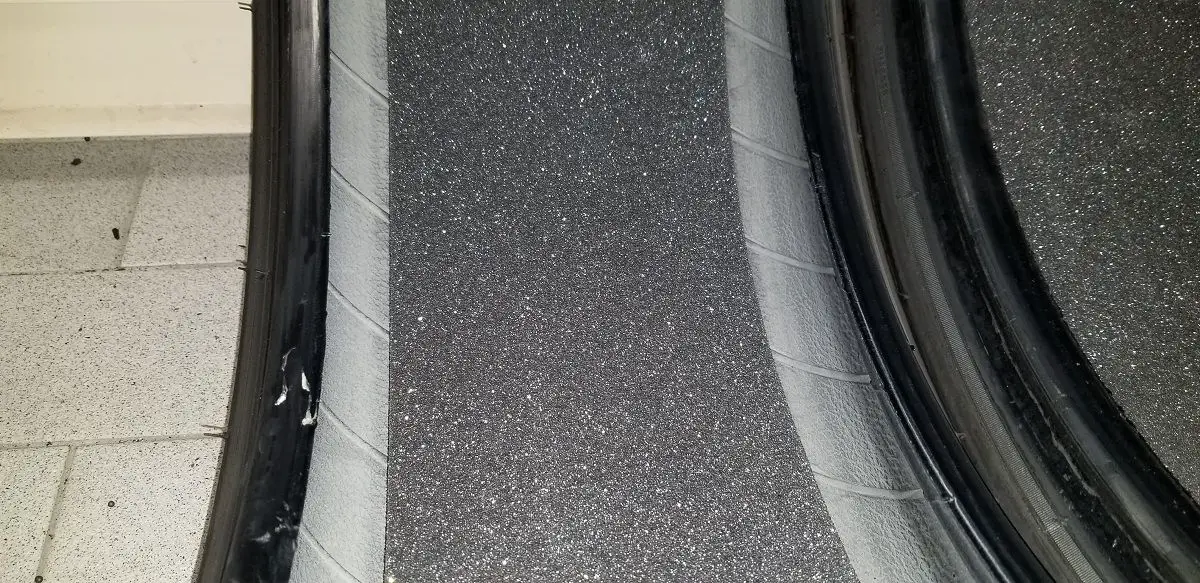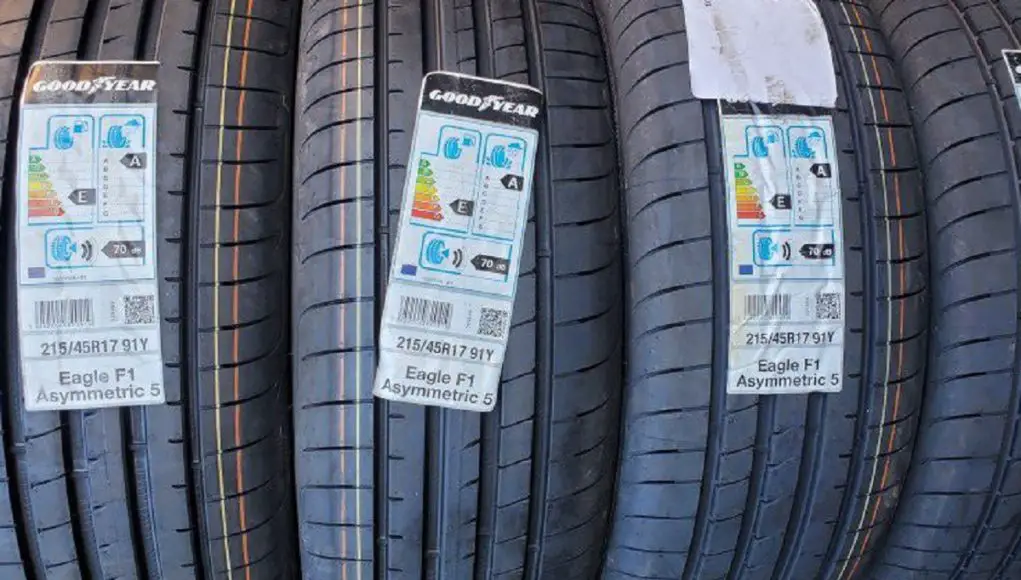Electric Vehicle Tuned tires add hundreds of dollars over its non-EV tuned tire equivalent and here’s why.
Shopping for tires for your electric vehicle and oftentimes you’ll come across two versions of the exact same make and model tire in the same size; one’s more expensive but is “Electric Vehicle Tuned” while the other is cheaper and apparently is NOT “Electric Vehicle Tuned.”
For example, here’s a Goodyear Eagle F1 Asymmetric 5 (M+S) in 255/55/20 101W XL, the “Electric Vehicle Tuned” tire is $66.08 more expensive. Sure, you’re paying off/own a $50,000+ car but $$264 is $264.

So, what exactly is an Electric Vehicle Tuned tire and is it worth the extra money?
Here’s what I found out.
First, it’s important to note that a dedicated EV tire and a so-called regular tire that’s Electric Vehicle Tuned are two entirely different things.
A dedicated EV tire, like the Hankook Ion family of tires, is a tire specifically designed with increased levels of rolling resistance, lower rolling-noise, and high resilience.
These EV-specific tires have a contact patch optimized for the heaver load of an EV car and have stiffer and thicker sidewalls to compensate for an EV’s inherent heavier curb weight.
All an “Electric Vehicle Tuned” tire is, on the other hand, is a standard tire with an inner layer of foam literally glued inside to reduce vibrations and muffle noise resonance, that’s it.
From what I understand, all you’re paying for is a layer of foam that supposedly makes the ride quieter.
If you already have so-called “Electric Vehicle Tuned” tires, the next time you get them switched out or change them for another tire, look inside and you can see the foam
In the meantime, here are some photos of what I’m talking about.


I came across the topic of “Electric Vehicle Tuned” tires browsing a Tesla Model Y Facebook group and several members had an opinion on their experience using tires with and without the special foam.
The thread is linked here, and you can check it out pending they approve you.
Here are some noteworthy comments.
“I personally can’t tell the difference between foam/no foam in noise.,” commented one Tesla Model Y owner on the topic. “We’ve seen a lot of delaminating of the foam which causes vibration. Just for that reason, I’d go with no foam.”
“There were test done on foam vs no foam (tires). The difference was not detectable by the human ear,” commented another.
“Goodyear, Michelin, Continental, they all have a tire replacement with foam in them. When I replaced the Michelin’s on my Model S and the Continental’s on my Model Y I replaced them with non-foam lined Michelins. They may be a slight bit noisier, but not worth the extra cost of the foam lined ones. Also, on both my Model S and my Model Y I had the foam detach and throw the wheel out of balance it was so frustrating, Tesla did replace both tires under good will warranty as it happened to both within the first several 100 miles,” yet another added on the topic.
After my research and those comments from actual foam vs no foam tire buyers it’s pretty clear, while Electric Vehicle Tuned Tires might give a quieter ride, most people will not even notice, the only measured differences might only be seen on sound measurement devices.
There’s also the chance, as mentioned, that the foam can delaminate causing vibration and balance issues which completely negates the cost and benefits of adding foam to begin with.
So, if given the choice between “Electric Vehicle Tuned” or not, even if you’re a baller where $100 bills are fun coupons, they’re not worth it and might even cause more harm than good.




